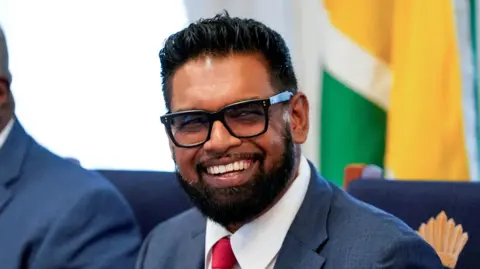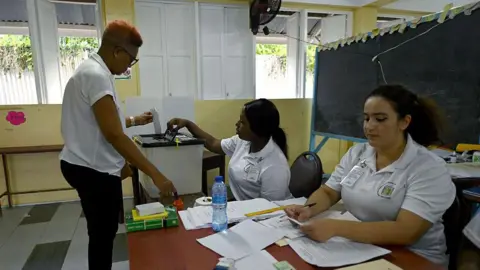On July 19, 2025, a significant prisoner swap occurred between the United States and Venezuela. This exchange released 10 Americans and permanent U.S. residents who had been detained in Venezuela, trading them for 252 Venezuelan immigrants deported to a high-security prison in El Salvador. The individuals liberated represent a wide spectrum of stories, each shaped by personal circumstances and socio-political factors.
Among those released was Lucas Hunter, a 37-year-old kite surfer with a finance career in London. He was reportedly seized by Venezuelan authorities whilst on vacation in Colombia, demonstrating the unpredictable nature of travel in politically unstable regions. Another American involved was Navy SEAL Wilbert Castañeda, aged 37, who had journeyed to Venezuela for romantic reasons. His case sheds light on how personal relationships can intertwine with international tensions.
In stark contrast, the Venezuelan deportees each have their own struggles. They had fled a country ravaged by economic troubles and oppressive governance, with many, such as Andry Hernández Romero, escaping persecution based on their political views and sexual identity. Hernández's plight symbolically highlights the vulnerabilities faced by marginalized communities.
Alirio Belloso, a 30-year-old who sold bicycle parts, embarked on the treacherous path to the U.S. seeking better opportunities to support his family, particularly his diabetic mother and young daughter. His story echoes a common theme among many migrants: the relentless search for a better life, often at the expense of safety and stability.
This recent exchange not only signifies a complex relationship between the U.S. and Venezuela but also illuminates the human experiences at both ends of immigration policies. While the freed American detainees return to a semblance of normalcy, the Venezuelan deportees confront the stark reality of re-establishing their lives back home, often under challenging circumstances, illustrating the tangled web of personal sacrifice, hope, and resilience amidst geopolitical conflicts.





















